I had so much fun talking to Carla and Liam from the Grounded Futures podcast. They really asked such interesting questions. Listen here.
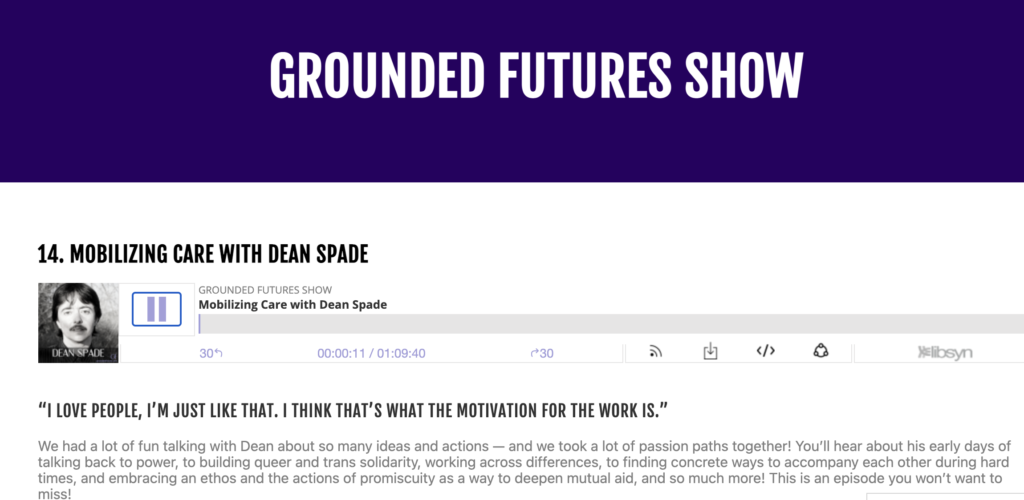
I had so much fun talking to Carla and Liam from the Grounded Futures podcast. They really asked such interesting questions. Listen here.

Aaron Belkin and I just published this debate/conversation about our opposing views on trans military inclusion advocacy. I hope it will be a useful tool for classrooms and reading groups, and people wanting to understand this debate.
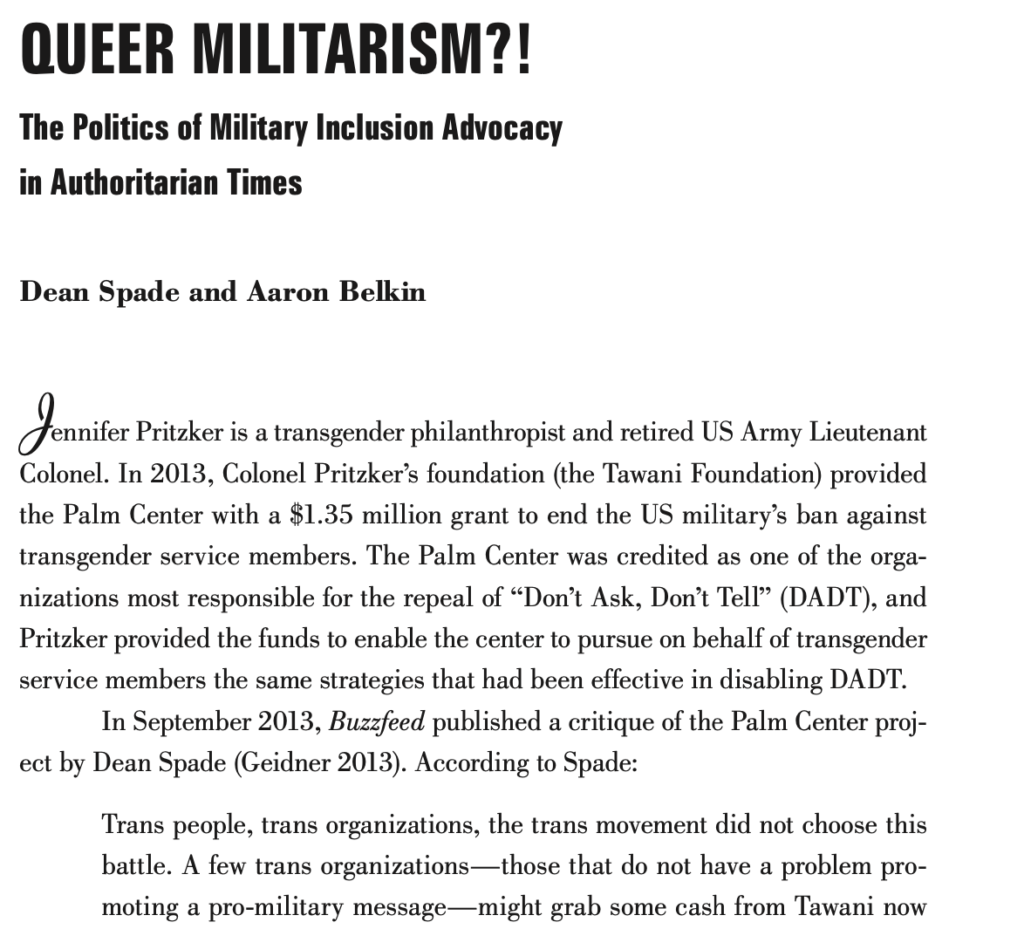
I had the pleasure of being part of this conversation with Madhavi Menon, Rahul Rao, and Flavia Agnes.
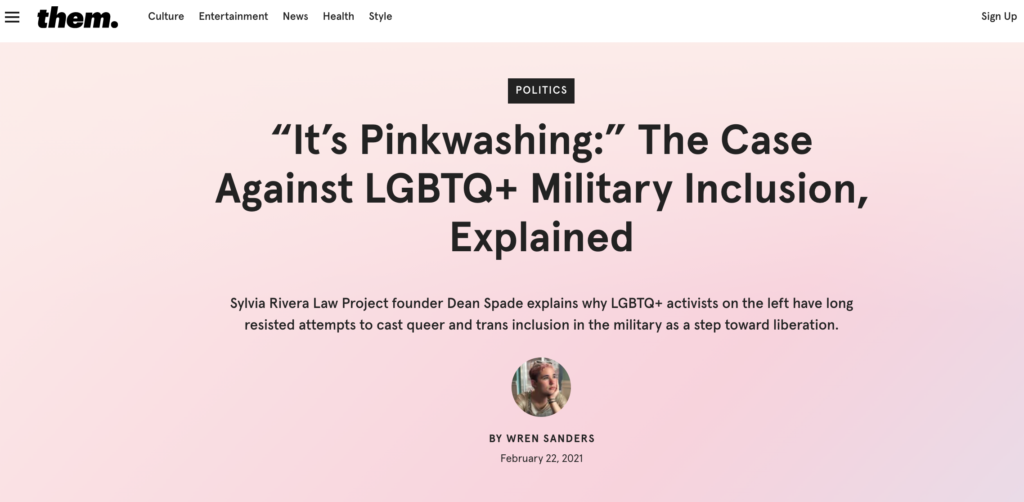
Just five days after being sworn in as the 46th President of the United States, Joe Biden signed an executive order overturning former President Trump’s ban on openly transgender Americans serving in the military. “All Americans who are qualified to serve in the Armed Forces of the United States should be able to serve,” it read, going on to argue that an “inclusive military strengthens our national security.”
Biden’s executive order, one of a flurry he signed during his administration’s first week, marked the fulfillment of one of his foremost policy proposals regarding the advancement of LGBTQ+ equality in America. More specifically, the order counteracted a 2017 directive by the Trump administration banning openly trans folks from the armed services — itself a reversal of the Obama administration’s 2016 order that paved the way for trans Americans to serve in the military without hiding their gender identity.
Continue reading “New Interview with Them about Why I Oppose Trans Military Inclusion Advocacy”In case you missed it, Colin Kaepernick recently invited a bunch of abolitionist activists to write essays for a collection that his publishing platform has released over the course of the last four weeks in collaboration with Medium. The essays are really really really good–the whole collection would be a great syllabus for a class or reading group. I was honored to be included.
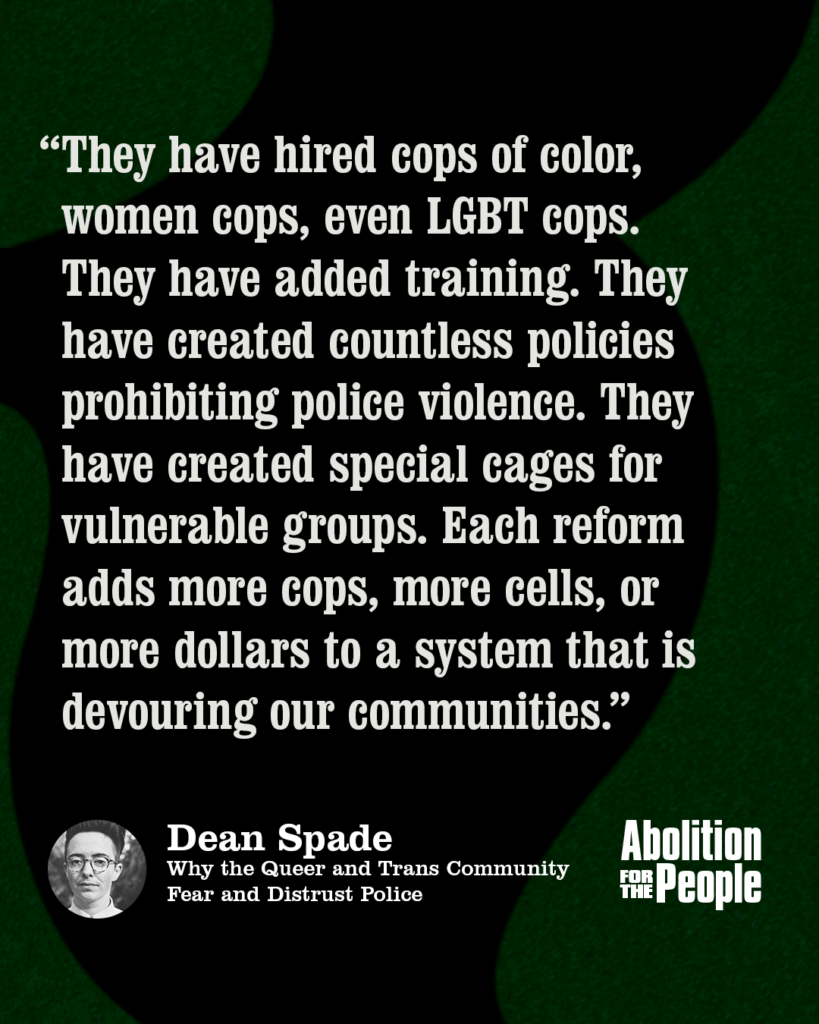
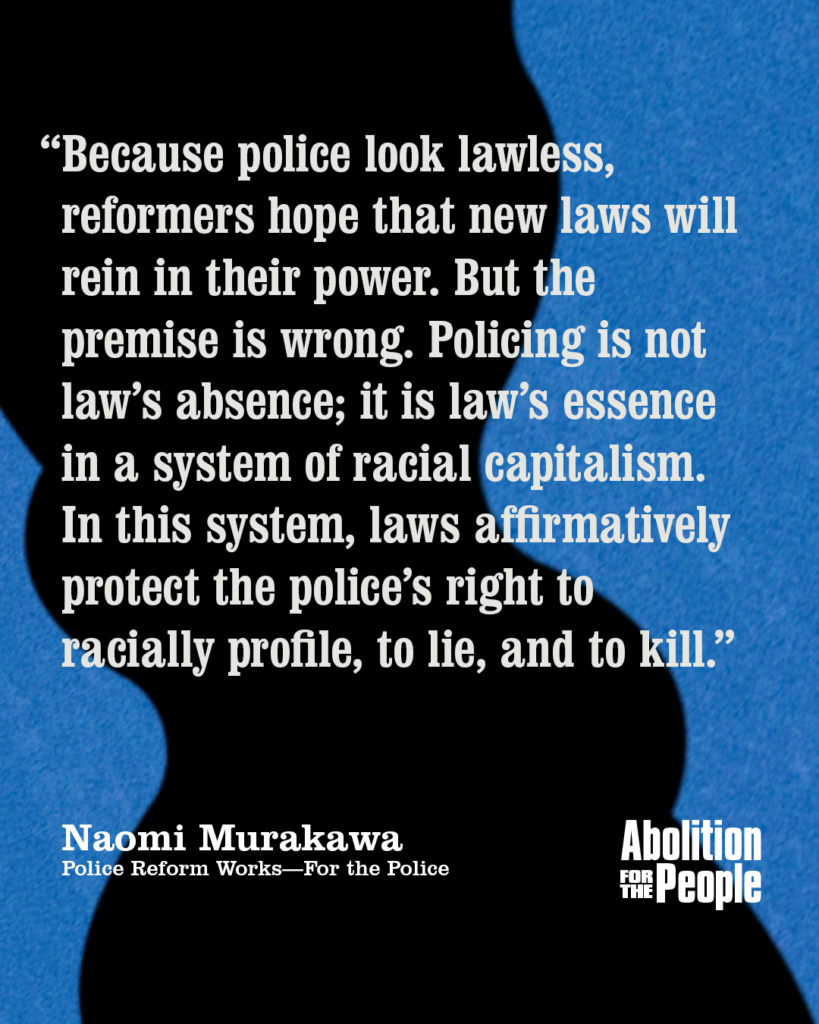
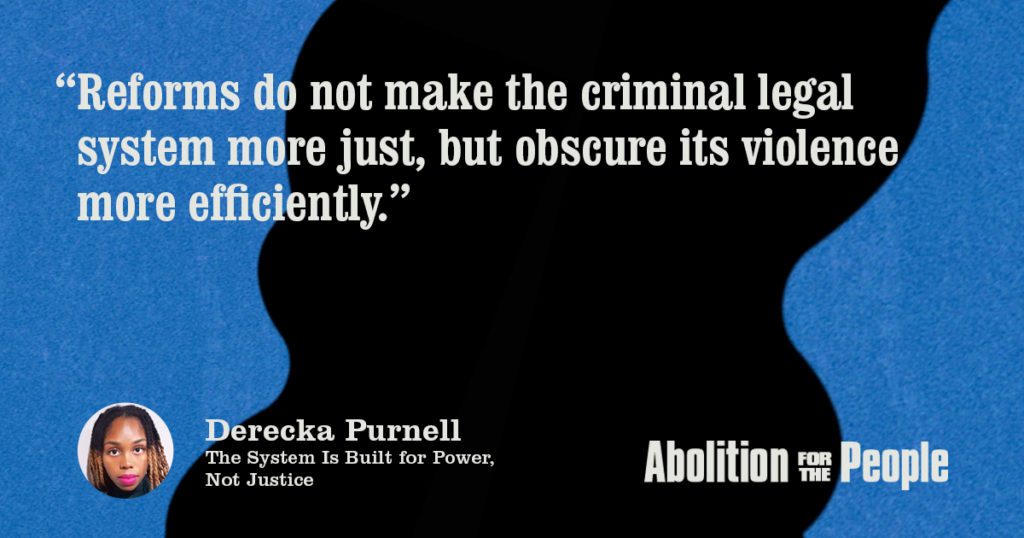
Check out these three videos of recent panel events I was part of.
This panel at NYU’s Center for the Study of Gender and Sexuality was a truly interesting conversation. And there was accidental outfit coordination between panelists.
This event at San Francisco State was a showstopper, featuring so many brilliant thinkers talking about queer justice, colonialism, war, and pinkwashing.
I was honored to be the keynote trainer at Movement Law Lab’s final session in their Build Power, Fight Power online course, in which thousands of lawyers and law students participated over several months. In this talk, I provide a basic rundown of the limits of law and lawyers to social movements, and the potential for us to participate in ethical, transformative ways.
Finally, this event with the Yale Undergraduate Prison Project about queer and trans abolition politics is not to be missed!
This op-ed appeared in TruthOut, June 28, 2020.
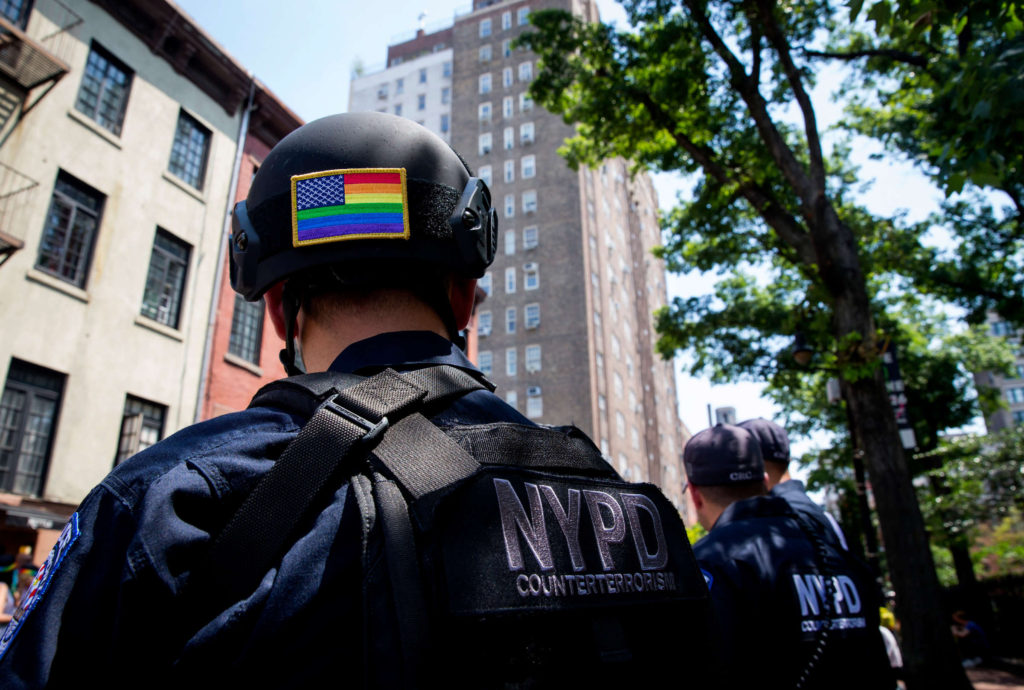
For decades, a battle has been raging in queer and trans communities about the relationship between our communities and the police. Pride celebrations mark the anniversary of the Stonewall Rebellion, in which queer and trans people fought back against the ongoing violence they faced at the hands of the police. That rebellion happened in the context of widespread anti-police politics of the 1960s and ‘70s, when uprisings against policing were raging across the country across movements against colonialism and racism. In the years after Stonewall, police forces reformed themselves in an attempt to restore their legitimacy, including by hiring cops of color and some gay cops, having cops march in Pride parades, and creating policies and propaganda aimed at portraying the police as protectors and saviors of women, children, LGBT people and other marginalized groups.
In many cities, especially in recent years, police departments marching in Pride parades have encountered protesters demanding that police be excluded from Pride. As the movement for Black Lives and against police violence grows, more police departments are simultaneously investing in messaging that they are “pro-gay,” and more and more queer and trans organizers are rejecting this messaging.
Hundreds of cities have adopted the police-initiated “Safe Place” campaign since it was invented in 2014 by Officer Jim Ritter at the East Precinct of the Seattle Police Department (SPD), the very precinct now abandoned by police in the face of recent anti-police protests. Ritter created the pro-SPD propaganda campaign four years after Seattle erupted in protests over the police killing of Native woodcarver John T. Williams, and three years after the Department of Justice launched an investigation of the SPD that found “the use of excessive force” and bias.
The Safe Place campaign encourages businesses to put a rainbow police shield sticker in their windows to let anyone fleeing anti-LGBT attacks know that if they come inside the business will call the cops for them. The Safe Place campaign takes a symbol from the queer and trans liberation movement, the rainbow flag, and puts it on a police badge to declare that the police are our protectors. Critics of the campaign rightly argue that police are leading perpetrators of violence against queer and trans people, not our protectors, and that the “Safe Place” campaign is about police PR, not about the well-being of queer and trans people. We would rather see businesses agree to not call the police as a way to make our communities safer.
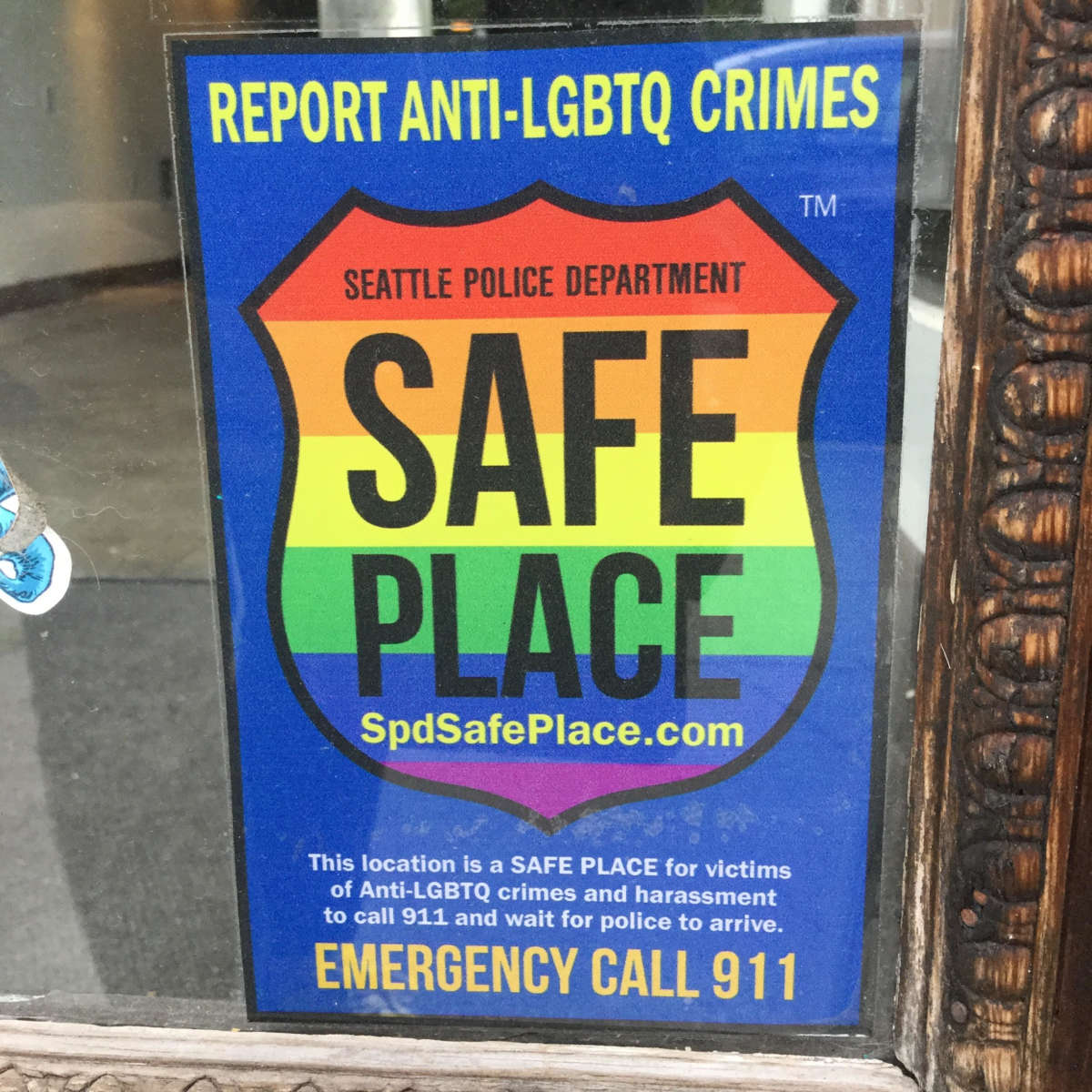
This summer’s rebellion against police violence has brought the debate about whether police can be reformed, or whether they need to be dismantled, into the spotlight. It raises questions about whether we could reform the anti-Black racism, homophobia, transphobia, ableism and sexual violence out of the police. Decades of failed reform efforts make clear that the answer is no. The last 60 years have seen waves of uprisings against police racism and violence, and waves of reforms aimed at fixing the problems. These reforms have diversified police forces, required police “diversity” training, declared that police would not discriminate, placed limits on use of force, and more.Police are leading perpetrators of violence against queer and trans people, not our protectors.
Over the same decades, police budgets were expanding, police were getting more militarized equipment and training, and policing was infiltrating more parts of society with police presence pervading in spaces like schools, parks and housing projects. The lesson is clear: Reforms that declare that police will stop harming hated groups fail. So many of the police forces that have committed recent high-profile killings (not to mention all the violence short of killing they have been perpetrating) already have the 8 Can’t Wait reform policies on their books, but their violence continues uninterrupted. All the police departments marching in Pride and handing out rainbow police shield stickers still have cops profiling, harassing, assaulting and arresting queer and trans people every day.
In the national debate about defunding police, people around the country are learning to differentiate between empty reforms that name a system as “fair” and real change that makes our communities safer and our lives more survivable. Pride is a good time to think critically about the legal systems that govern our increasingly less survivable lives (in the face of economic crisis, global pandemic and ongoing law enforcement violence), while they tell us we are increasingly equal.
This month, the Supreme Court ruled that discrimination against gay and trans people by employers is illegal under the 1964 Civil Rights Act. This ruling has been widely celebrated. Unfortunately, the excitement about what “legal equality” might mean in the lives of queer and trans people does not square with reality.
Being ostensibly protected by civil rights laws does not necessarily translate into increased well-being or decreased violence against hated groups. One needs only to look to the fact that discrimination based on race and sex has been illegal for over a half century. In the decades since people of color and women supposedly became equal under the law, material inequality — meaning actual harm to the survival and well-being of these supposedly protected people — actually worsened in many substantive ways. This period saw the drastic expansion of imprisonment and immigration enforcement in the U.S., targeted at people of color and marked by gender violence, brutal cuts to programs and benefits for low-income women and children, and an expanding racial and gender wealth gap. Discrimination in housing and jobs may have become illegal, but it is very difficult to prove in court, especially since most people do not have access to legal help, so almost no one gets redress.Queer and trans safety and liberation will not be delivered by courts or police departments. It will come from widespread collective action.
The United States’ shift from a legal system of explicit sexism and racist apartheid to one in which the state is cast as the supposed protector of women and people of color constituted what some scholars and activists call “preservation through transformation.” In the face of the global and domestic uprisings against colonialism and racism in the middle of the 20th century, the law changed just enough to make this system appear fair, while preserving the status quo of material inequality as much as possible.
The role of civil rights laws is not to actually change the harms faced by hated groups, it is to frame the very government whose policies and practices most endanger those groups as their protector. As we face a severe global financial crisis and as wealth inequality climbs to dizzying heights, we will continue to see poverty worsen for queer and trans people, especially those with disabilities, those of color and women, regardless of the Supreme Court’s declaration about protecting us from discrimination.
The Court’s other recent rulings, like the ruling green-lighting the Atlantic Coast Pipeline and the ruling saying that asylum seekers have no right to object in court before being deported, tell us more about what is to come for queer and trans people, and for all people. The fact that the same court can say we’re equal and then make decisions that endanger our lives should be no surprise at this point, since the NYPD paints rainbow flags on its police cars while continuing to terrorize queer and trans communities.
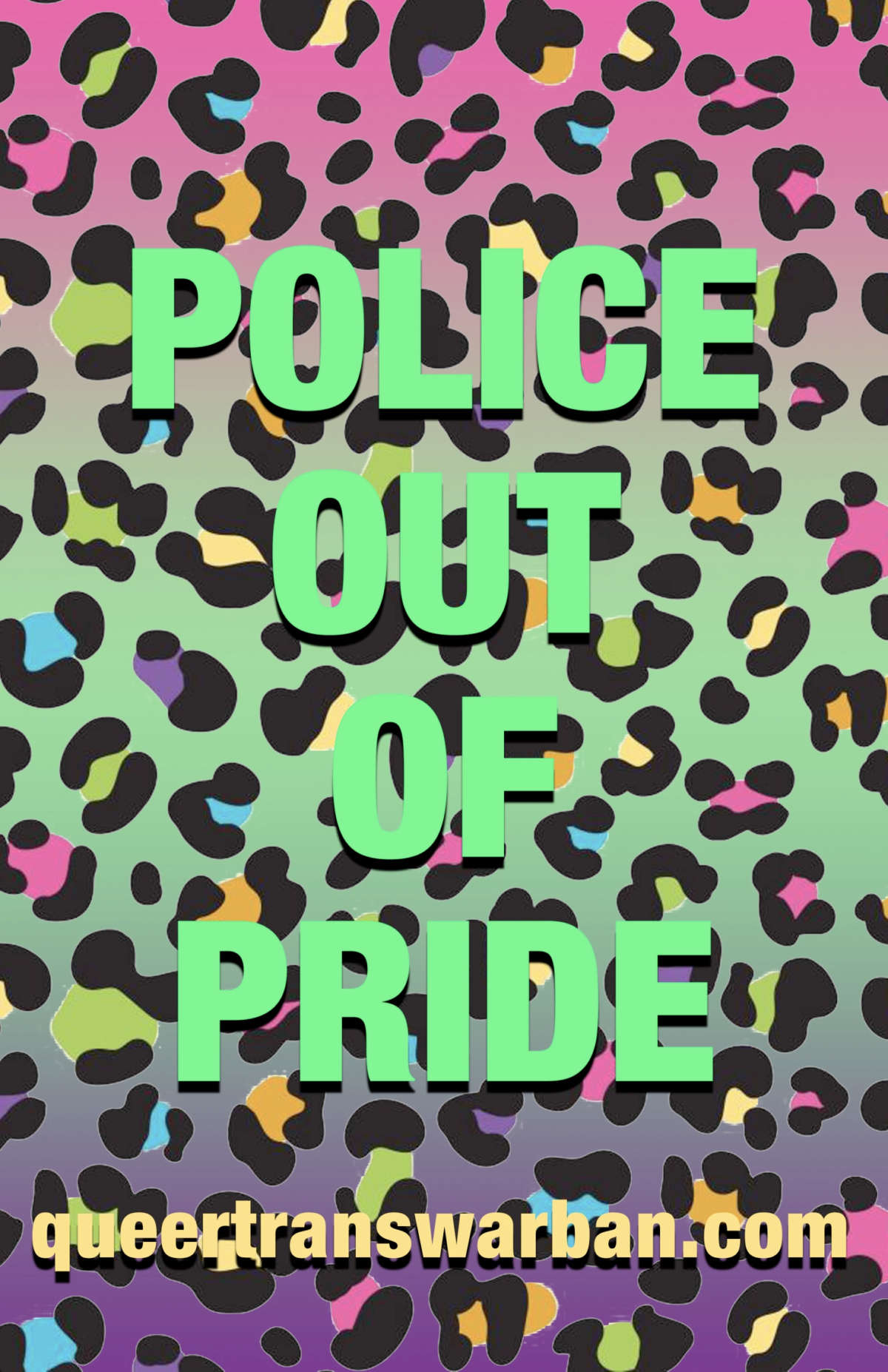
This Pride season, we should see growing calls to get the police out of Pride celebrations and to get businesses to stop participating in Safe Place campaigns. This increasing rejection of surface reforms and demand for transformative change — including divestment from policing and militarism and investment in meeting human needs — should help us question celebratory declarations of equality coming from the Supreme Court decision. Queer and trans safety and liberation will not be delivered by courts or police departments. It will come from widespread collective action for what we actually need to live: housing, health care, child care, food, clean air and water, and transportation. We are past the point where putting a rainbow sticker or wrapping a rainbow flag around a cop car, a tank, a courthouse, or a brutally exploitative anti-worker economy can be mistaken for victory or liberation.
For Israeli Apartheid week, I joined the SUPER chapter at Western Washington University and gave a talk on pinkwashing and how it emerged from a rights-based gay liberal inclusion politics, and what it looks like to resist that politics and center racial and economic justice in queer and trans liberation work. The first two minutes have some strange audio so I recommend skipping to 2:00 and diving in from there.
Duke University Press just published a Care for Uncertain Times syllabus making tons of great work free to read! I am so grateful that my book, Normal Life: Administrative Violence, Critical Trans Politics and the Limits of Law is included, as is the new issue of Social Text on Radical Care in which I published an article on mutual aid. Check it out!
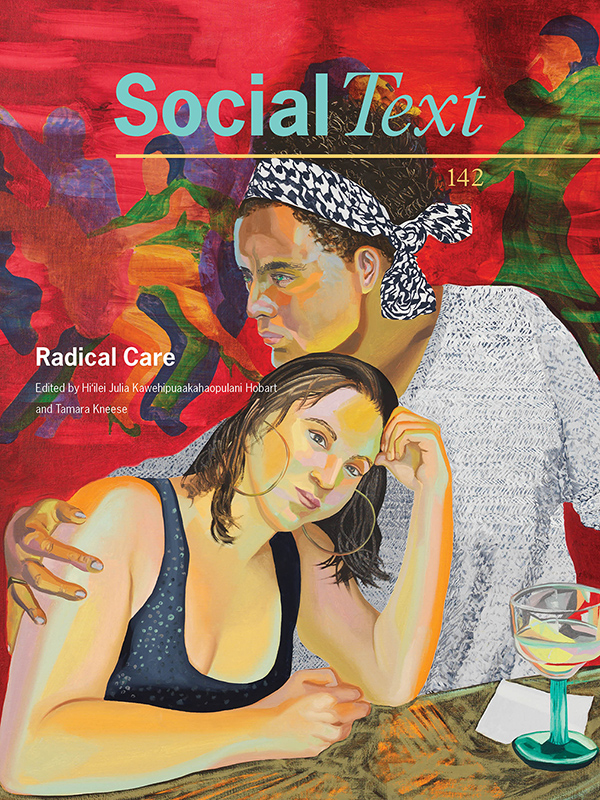
Please watch and share this new video series featuring Shannon Perez-Darby, Kiyomi Fujikawa, and Mariame Kaba, produced by me and Hope Dector.
Accountability is a familiar buzz-word in contemporary social movements, but what does it mean? How do we work toward it? What does it look like to be accountable to survivors without exiling or disposing those who do harm? We made four short videos featuring Kiyomi Fujikawa and Shannon Perez-Darby talking about these issues, and then recorded a live discussion between Shannon, Kiyomi, and Mariame exploring models for building accountable communities for the purpose of healing and repair.
The online event:
Part 1: What is Accountability?
Part 2: What is Self-Accountability?
Continue reading “Building Accountable Communities Video Series”